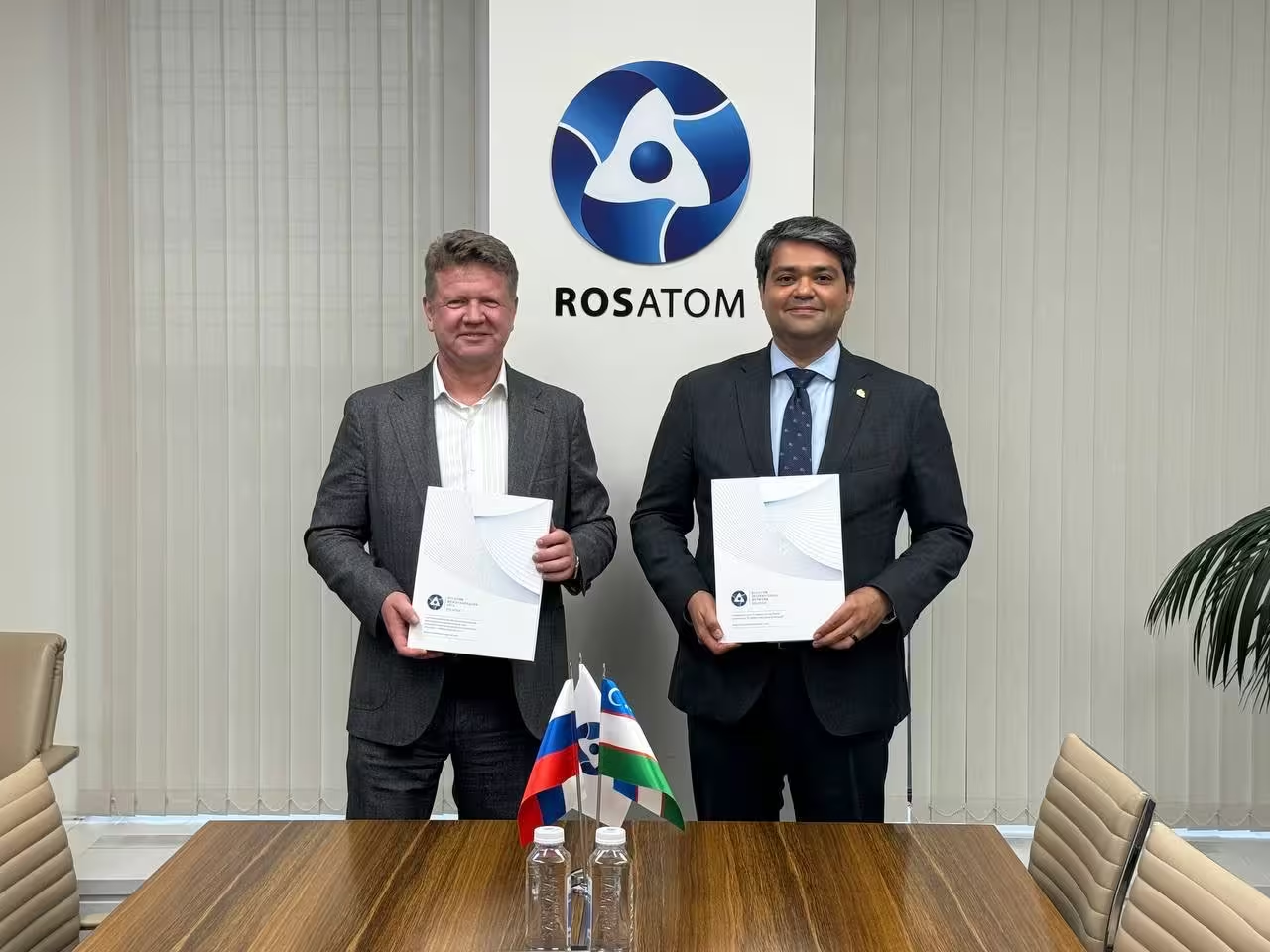The Uzatom Agency and Russia’s Rosatom signed a Memorandum of Understanding to expand cooperation in the field of radiation processing technologies, with a focus on applications in medicine and agriculture on June 20, 2025.

The agreement was formalized in Moscow by Azim Akhmedkhadzhaev, Director of Uzatom, and Artur Kolontayev, CEO of a Rosatom-affiliated company specializing in radiation processing projects.
Under the memorandum, both sides will work toward the creation of multifunctional ionization treatment centers in Uzbekistan. These centers aim to provide advanced sterilization solutions for medical devices and increase the shelf life and safety of food products through ionizing treatment.
“We see significant potential in the ionization processing market in Uzbekistan,” said Artur Kolontayev. “Together with Uzatom, we are committed to expanding the use of radiation technologies to improve food security, public health, and the export capacity of the country.”

Azim Akhmedkhadzhaev highlighted that the partnership with Rosatom reflects Uzbekistan’s commitment to innovation, aiming to modernize key sectors, enhance sterilization and food security, and boost export potential for sustainable development.
Multifunctional ionization treatment centers are specialized facilities equipped to apply ionizing radiation to sterilize medical instruments and process agricultural products. The method is internationally recognized for its safety and effectiveness, offering a sterility assurance level of 10⁻⁶—unmatched by other technologies.
Approved by the UN Food and Agriculture Organization (FAO), the International Atomic Energy Agency (IAEA), and the World Health Organization (WHO), ionizing treatment is used to eliminate pathogens, insects, and contaminants, while extending product shelf life without compromising human health.




